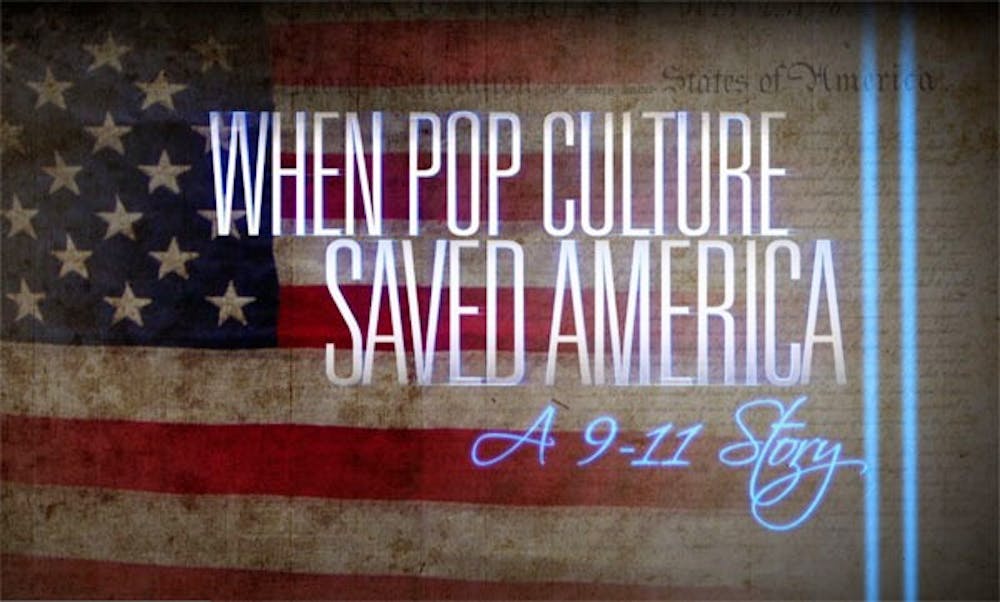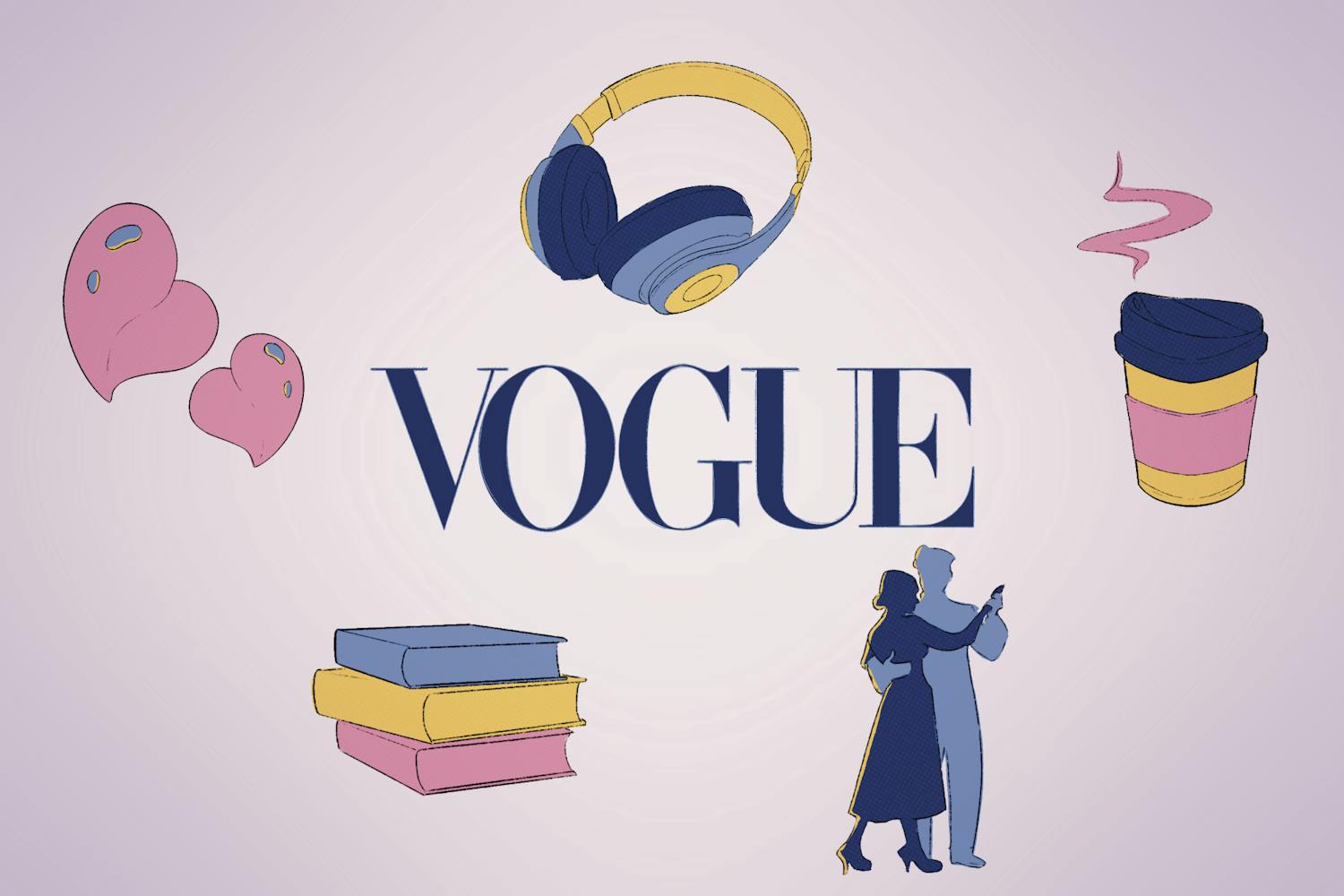We all know what happened on 9/11. We’ve had the footage of old news coverage etched into our minds, and the photographs of the chaos and destruction that enveloped Manhattan on that fateful day won’t soon be forgotten.
For the 10-year anniversary of the terrorist attacks on the World Trade Center buildings on Sept. 11, 2001, the A&E and Biography channels have broadcast a special program entitled “When Pop Culture Saved America.”
At first, the title of the program may put people off. It might sound overly dramatic or even ridiculous to say pop culture was a main reason America was able to recover from the terrorist attacks. However, upon viewing the program, all preconceived notions are thrown out the window.
What makes “When Pop Culture Saved America” special is that it is different than most news features on the events. It explains the events surrounding 9/11 from the perspective of entertainers, an outlook largely overlooked by many Americans.
“Comedy and tragedy are very strange roommates,” said comedian Gilbert Gottfried in his interview with A&E. Pop culture, which had previously been a frivolous aspect of our lives, became relevant after 9/11. It seemed to suddenly have a purpose, something many failed to see in the wake of the tragic events.
In the aftermath of 9/11, it seemed that someone had pressed pause on our lives. No one had any idea how to move on from what we as a nation had just experienced. With New York City at a stand still, people in the entertainment industry were called upon to get back to work in an effort to take steps toward returning to normalcy. America needed a break from despair and it was up to the entertainers to deliver.
Actor Richard Belzer noted early on in the special that performers have a responsibility to perform. However, immediately following the attacks, Belzer recalled feeling like he could never be funny again.
Late night television host David Letterman broke the ice in regards to media personnel speaking openly about the tragedy. CBS evening news reporter Dan Rather, whose career in journalism had trained him to put his emotions on hold while working, broke down on Letterman’s show. It was exactly what the audience needed to see. People felt that if it was okay for Dan Rather to cry about it, it was OK for everyone to cry about it.
“The talk show guys did it the best,” said actor Ray Romano. “They united everyone and perpetuated the sense of ‘OK, we need to start to move on.’”
Rudy Giuliani, the mayor of New York City at the time, opened the show for Saturday Night Live’s first post-9/11 episode. He addressed the need for the great institutions of New York to carry on and let the rest of the world know that both New York City and America were open for business. Amidst concerns that it was too soon to laugh, Giuliani stressed that the reason it was so vital for SNL to return was that people needed to laugh again.
While television shows were trying to decide what impact Sept. 11 would have on their programs, Jane Rosenthal, Robert De Niro and Martin Scorsese decided to host a film festival to give people in New York something to look forward to. George Lucas allowed his film “Star Wars” to premiere at the first annual Tribeca Film Festival.
Nelson Mandela, a guest at the festival, told the audience that while he was in jail, the one night everyone looked forward to was movie night. He said people could heal through the mediums of movies and art.
“Artists are important to society,” said writer Sarah Tuft. “We record human experience.” Tuft authored “110 Stories,” a play based on true stories of real people.
Katie Harman, the winner of the Miss America Pageant in 2002, was waiting in Atlantic City that September with her fellow Miss America candidates to find out the verdict of the pageant. Harman said she remembered struggling to see the point in continuing with the pageant given what had happened. She recalled thinking, “Why am I here? What is a parade and a swimsuit gonna do for America right now?”
However, when Harman visited Ground Zero, she learned just how much the pageant meant to people that year. A volunteer told her that he and his wife chose to watch the pageant that night because it was the only program on television that was not gloomy.
The Concert for New York City, held at Madison Square Garden, was a turning point for the people of New York. Event staff gave the best floor seats to policemen and fire fighters, who wore their uniforms to the show. The show represented more than just a night of remembrance. It was the first time since 9/11 that people were allowing themselves to have fun.
“Music sort of tears down boundaries between people,” said Broadway actress Idina Menzel.
Kelly Ripa, co-host of “Live with Regis and Kelly” expressed that the show reminded her of the way the United States had been before the attacks. “It’s okay to feel depressed and sad, but it’s also okay to feel proud of your country,” said Ripa. All of the proceeds from the concert went to the families of the victims of the 9/11 attacks.
“When Pop Culture Saved America” discusses 9/11 in a different way than most anyone has ever heard or seen. With many more stories, interviews and first hand accounts presented in the special, it is a program worth watching.
“When Pop Culture Saved America” will air again on Monday, Sept. 12 at 12:00 a.m. on Bio.
Reach the reporter at cemurph2@asu.edu
Click here to subscribe to the daily State Press newsletter.





